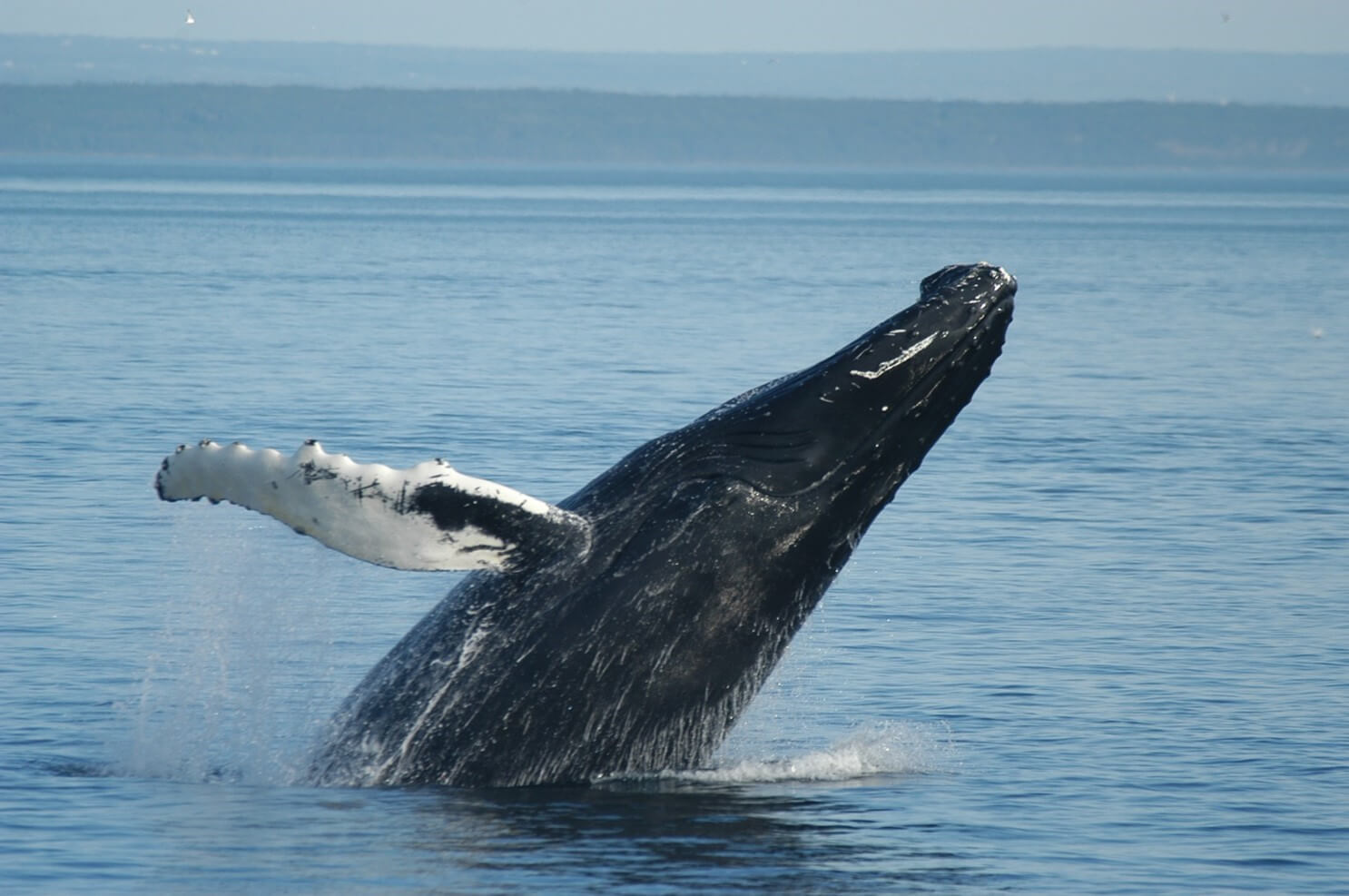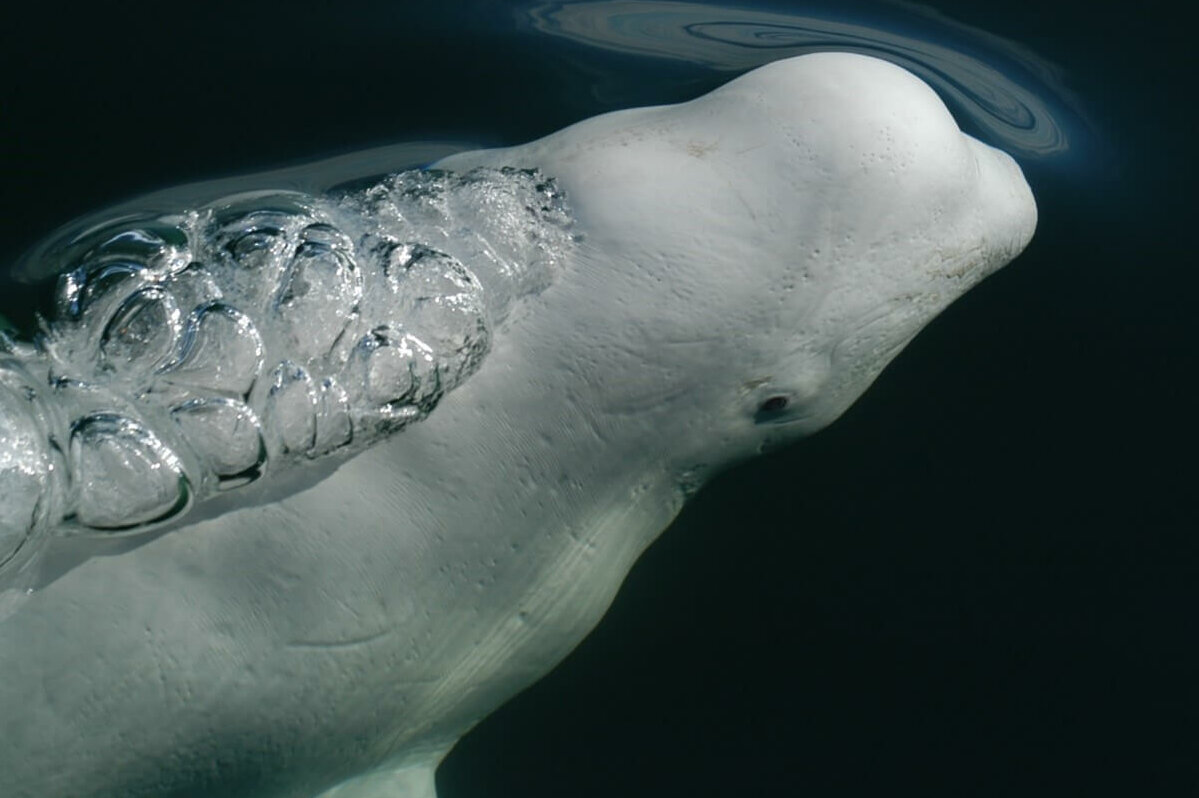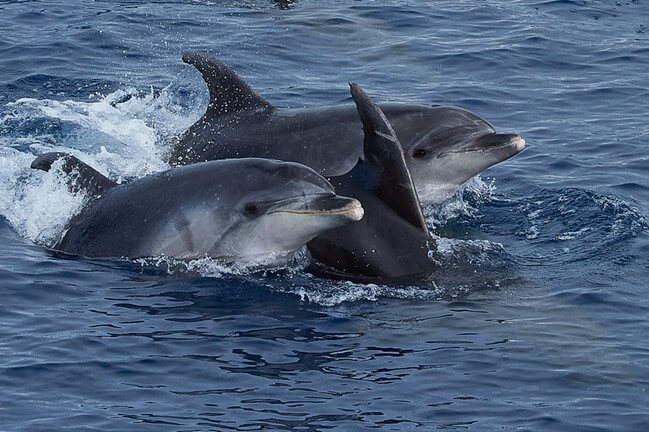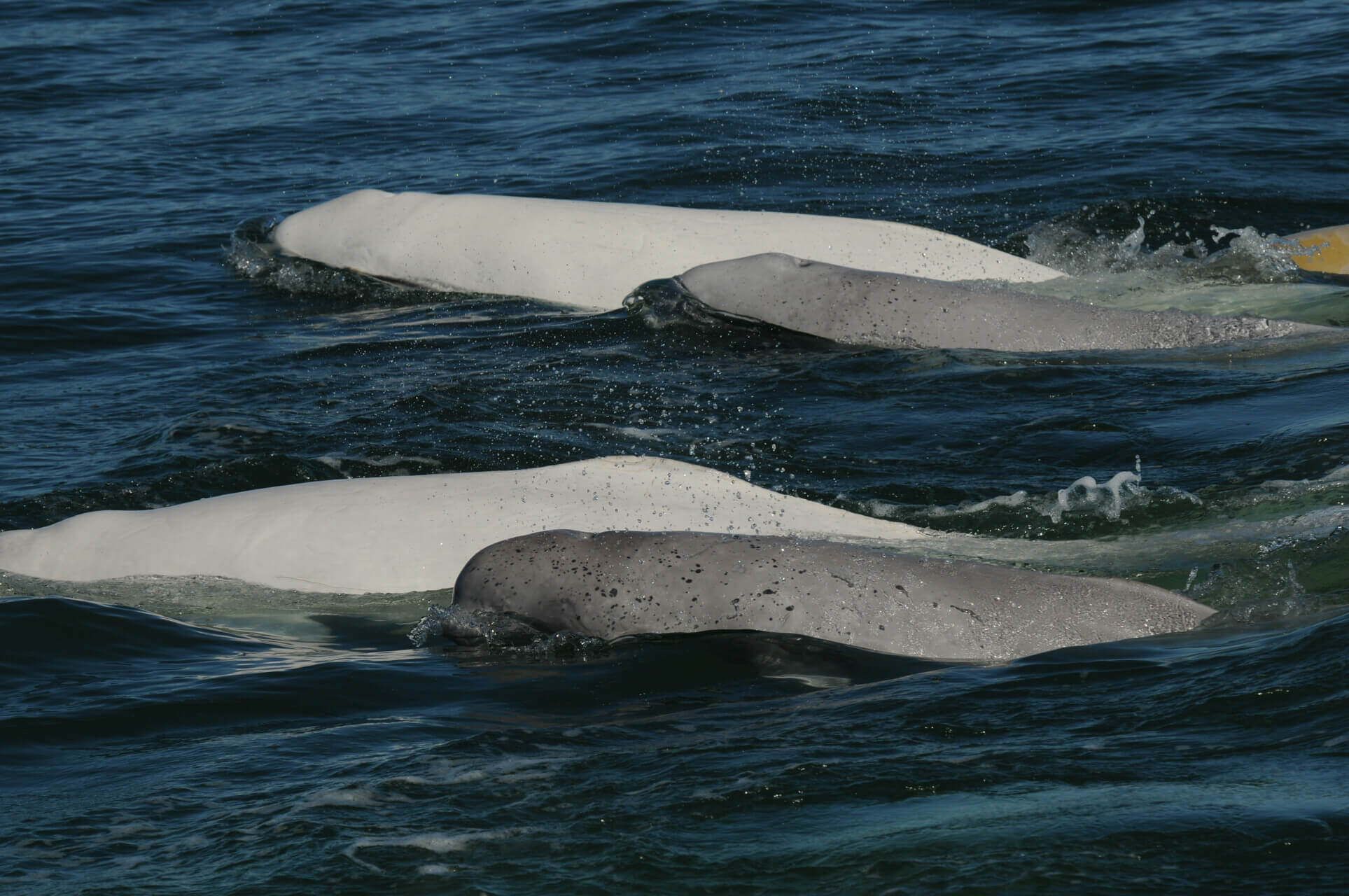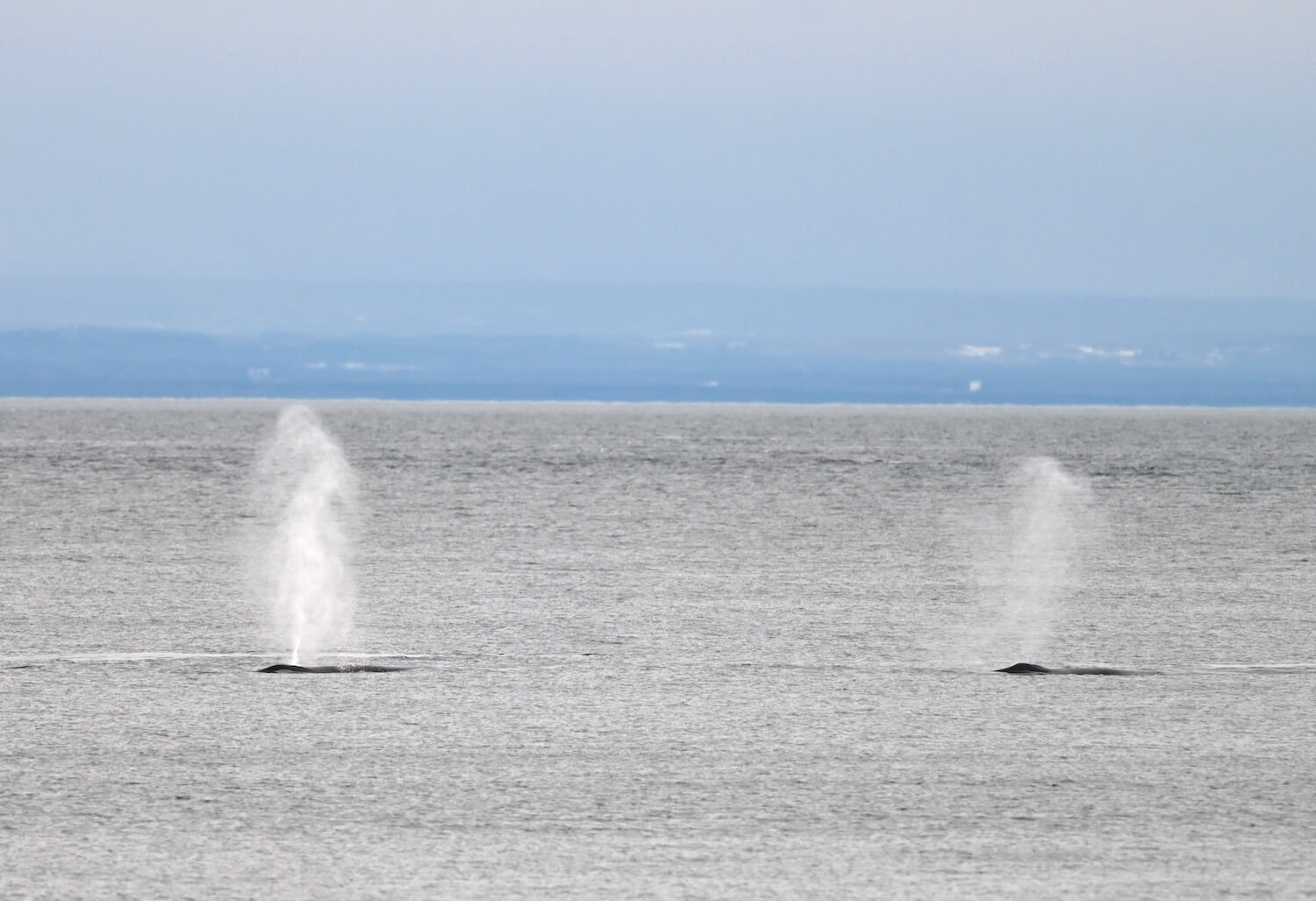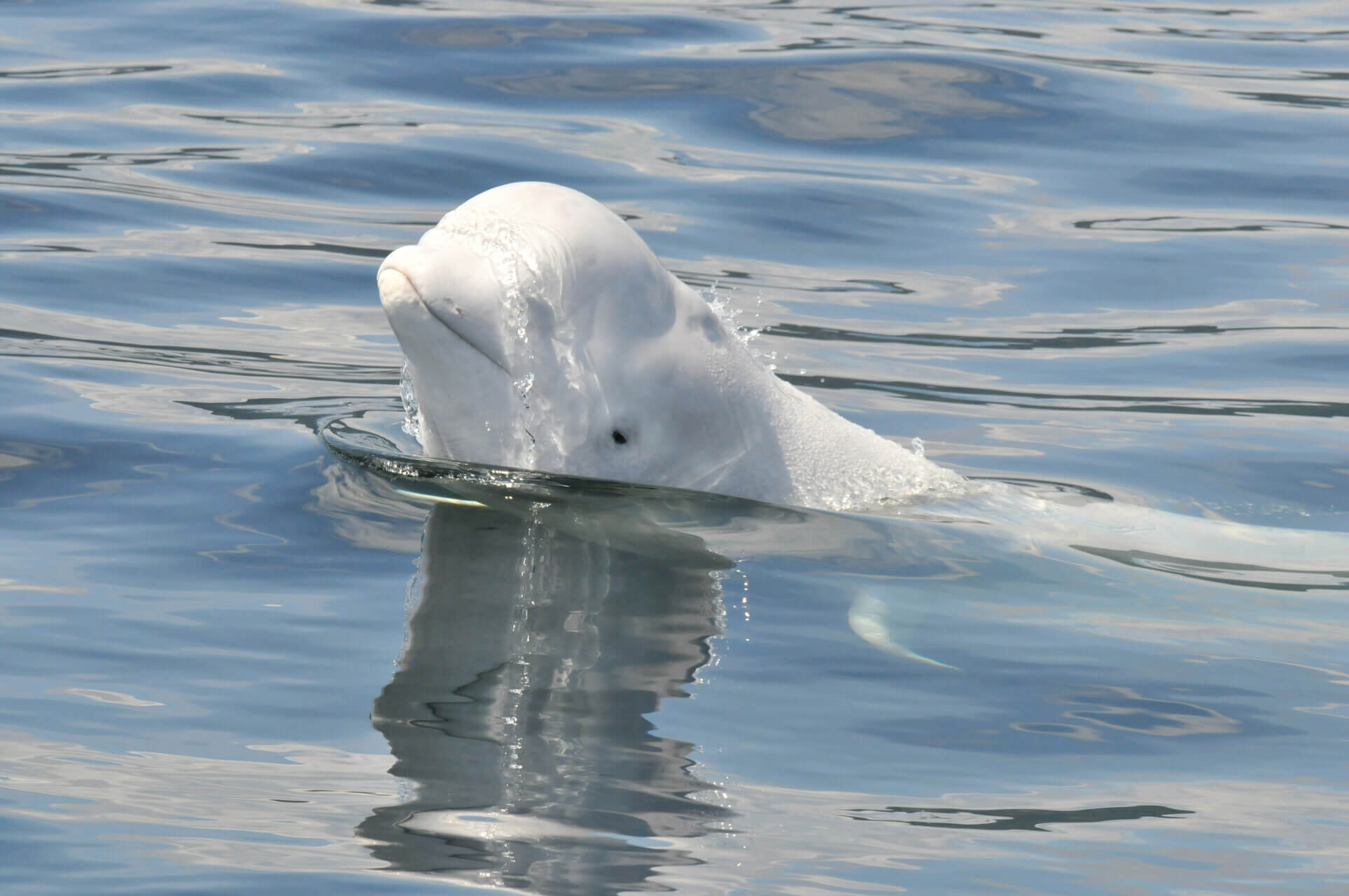The more time they spend watching and working with marine mammals, the more observers and scientists alike come to assume that these animals have distinct personalities. Is this a fallacy, or can whales indeed have unique temperaments like humans?
Endearing individuals in the St. Lawrence
When discussing marine mammal behaviour, the scientific director of the Group for Research and Education on Marine Mammals (GREMM), Robert Michaud, leaves no doubt as to the easily recognizable social traits of certain whales that his team encounters. Several belugas known to the organization are even referenced according to their personality: Pascolio is curious, while Yogi is a loner.
From invertebrates to giants of the seas… What does science say?
Over the past two decades, research on animal personalities and behavioural habits has expanded rapidly, whereas before the year 2000, such data were practically non-existent. Whether they focused on chimpanzees, snakes, eastern chipmunks or spiders, numerous studies suggest that humans are not the only species to exhibit personality.
But what exactly do we mean by personality? In the simplest terms, and drawing from the field of human psychology, behaviour can be defined as an observable action, emotion as a neurological impulse that incites the said behaviour, and personality traits as distinct behaviours specific to certain individuals.
Harold Herzog, a professor of animal psychology, points out that the definition generally refers to individual differences in behaviour, which remain stable over time and according to context, and which make it possible to distinguish one individual from another. According to this logic, the presence of variations in personal preferences in invertebrates can be interpreted as an expression of personality traits! It should be noted, however, that there is a thin line between what is considered behaviour and what is considered a personality trait, and that these words are sometimes even used synonymously depending on the context.
Furthermore, not all species have received equal attention when it comes to behavioural research. Marine mammals are particularly difficult to study because of their aquatic environment. Species that have been the subject of more extensive research include bottlenose dolphins (Tursiops truncatus), grey seals (Halichoerus grypus) and killer whales (Orcinus orca).
To study the personalities of animals, some scientists have attempted to apply models used in human psychology, such as the famous “five-factor model,” which assesses personality on the basis of five personality traits: openness, conscientiousness, extraversion, agreeableness and neuroticism. Dogs, chimpanzees and killer whales also exhibit behaviours that can fit into this model.
Studies converge on the idea that marine mammals possess complex cognitive abilities as well as a wide range of social behaviours. In dolphins, researchers have been able to identify cooperation and problem-solving abilities, altruism, as well as traits ranging from playfulness to aggressiveness. Additionally, dolphins exhibit these traits in different ways, depending on the individual, which implies personality differences.
As for killer whales, a Spanish research team that studied them in captivity has been able to demonstrate that they display personality traits associated with playfulness, cheerfulness and affection. The hypothesis states that these social skills, which are very similar to those that can be observed in humans and chimpanzees, developed in a gregarious context where this type of interaction is necessary for the animals to evolve harmoniously. Killer whales, whose social organization revolves around small, tightly knit groups, use complex hunting and food-sharing tactics thanks to an elaborate communication system. Scientists have also discovered that these marine animals are able to imitate the behaviours of members of their own species, as well as to reproduce sounds associated with sea lions, dolphins and even humans.
Through our human eyes...
Does assigning personality traits to animals count as anthropomorphism? Anthropomorphism refers to the attribution of human traits to other animal species. Since this is a relatively new area of research, it can be easy to confuse emotions, behaviours and personality traits.
It is difficult to observe stable behaviours over time in a marine context, which is nevertheless a basic criterion for determining whether or not they are indeed personality traits. The fluctuating contexts of study, not to mention our own human subjectivities, are factors to be taken into account when studying personalities in whales. As with emotions, some researchers issue caveats when it comes to interpreting behaviours. Robert Pitman, marine ecologist at the National Oceanic and Atmospheric Administration, reminds us that we must avoid attributing feelings or intentions to animals, since each species has its own perspective and characteristics that help ensure its survival.
Par Jeanne LaRoche


